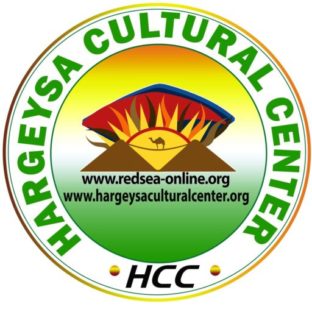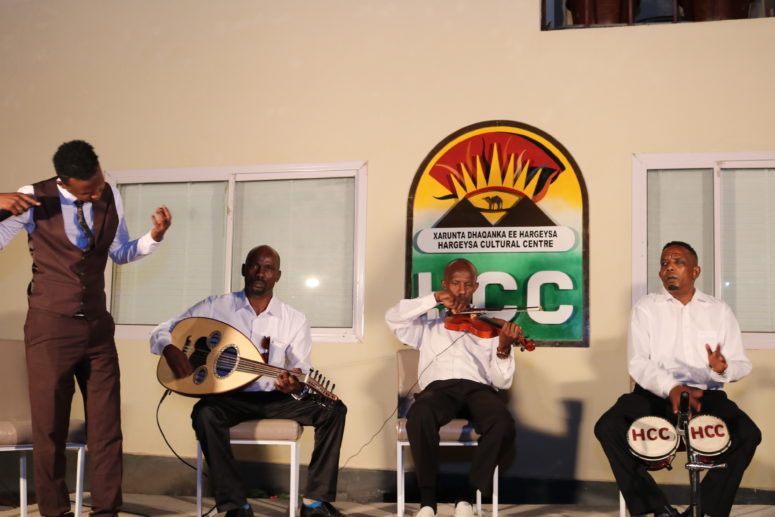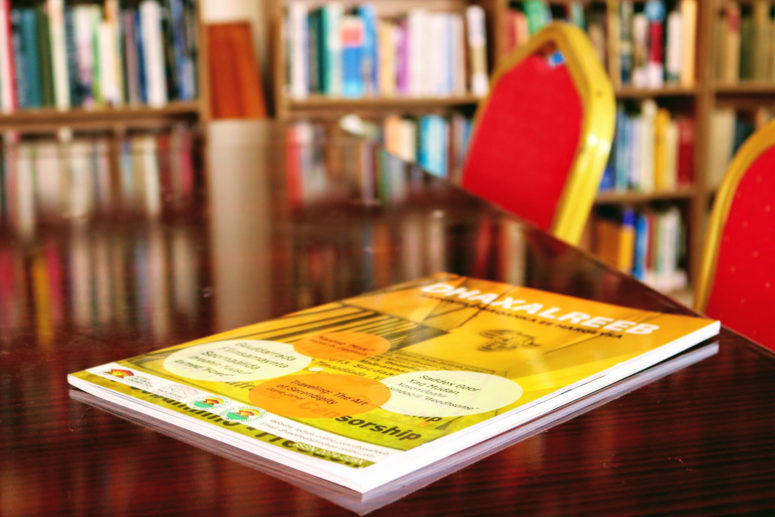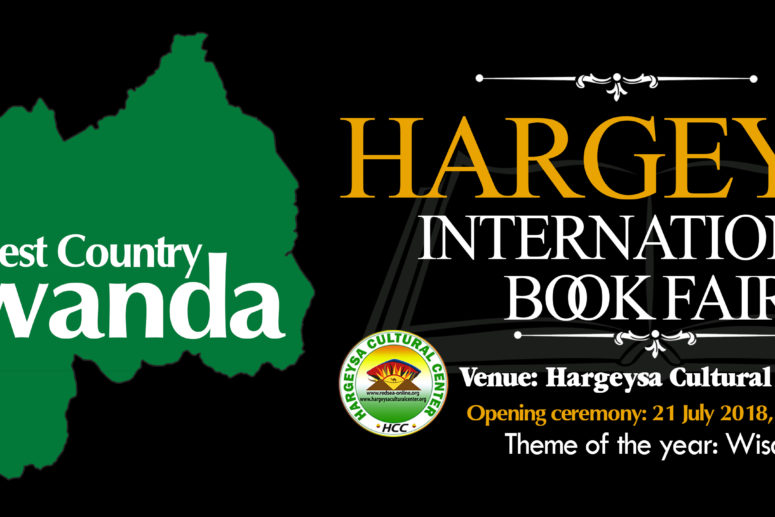February has a special place in the hearts of Somalilanders specially with young and change seekers are the center of attention for all of the activities in Hargeysa Cultural Center most importantly for the Academic Dialog Session. Looking forward for the celebration of Somaliland youth day on February 20, we Started the month with the session on “Migrants on the Margins: a research project of the Observatory of Conflict and Violence Prevention (OCVP) an institution that is serving as a member of international research partners to the Royal Geographical Society’s Field Research Program that is under way in collaboration with researchers from UK Universities (Sussex, Durham and School of African and Oriental Studies at University of London) to investigate the vulnerability and opportunities of internal migrants from rural and pastoral areas of Somaliland. The research focused particularly on refugees those who are living in three Internally Displaced Camps(IDPs) in Hargeisa (Statehouse, Digaale Camp and Camp A). This three years field research project is simultaneously taking place in four of the world’s most pressured cities, including Hargeisa(Somaliland), Harare(Zimbabwe), Colombo (Sri Lanka) and Dhaka(Bangladesh) with the hope to draw on systematic and comparative data on how these patterns and management techniques vary from one city to another.
To present the research’s current status along with basic findings and methodological aspects, we had Dr Laura Hammond (SOAS) and Dr Benjamin Dix (Positive Negatives, an arts-based company working with the project) along with Ms. Ayan Yousuf (OCVP). The objective of the research is to understand the experiences and challenges that the displaced face in moving into the city and trying to find sustainable livelihoods. The research also considered the challenges faced by municipal authorities in responding to this issue.
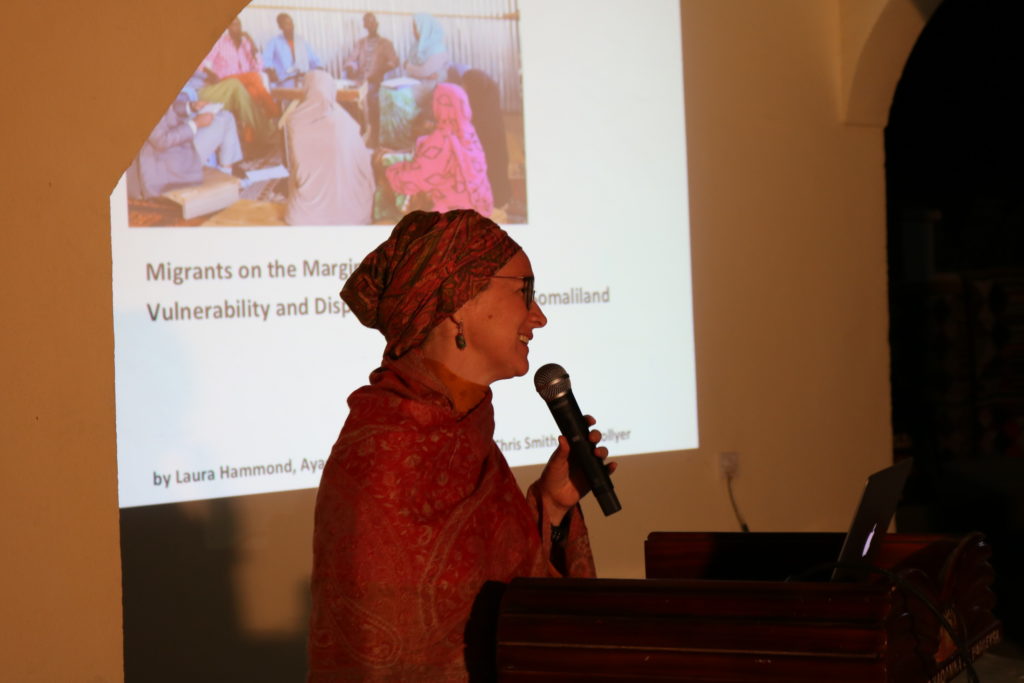
As a background and basic findings, the researchers presented that Hargeisa city has nearly one million inhabitants and its economy is mainly dependent on remittance and livestock export. Indicating the fact that the local authority is also struggling to improve the city’s infrastructure and public services which are either absent or in a poor condition, cyclic droughts in the country is stated as a factor that further complicated the situation and have forced many rural and pastoral communities to move to the city in search of survival. The researchers further elaborated that whenever there is drought in the country there are new arrivals, who often find themselves in informal settlements. The three sites house IDPs who are mainly from rural and pastoral communities, but the camps differ in proximity to the city Centre, access to services (including water, education, transportation and work), time of establishment and population which made the challenges faced by the IDP to vary accordingly. The State House, established in 1991, is believed to be the oldest IDP camp in the city, housing 4,500 families at the Centre of Hargeisa. In contrast, the newer Camp A looks like a temporary camp: residents live in simple huts of plastic and old cloths with the hope they will be resettle in a permanent location. Finally, Digaale camp, established in 2012, has an estimated population of 900 families and is located 6km outside the city. Unlike the other two camps, the residents live in permanent metal houses built with the support of the Norwegian Refugee Council (NRC) and Danish Refugee Council (DRC).
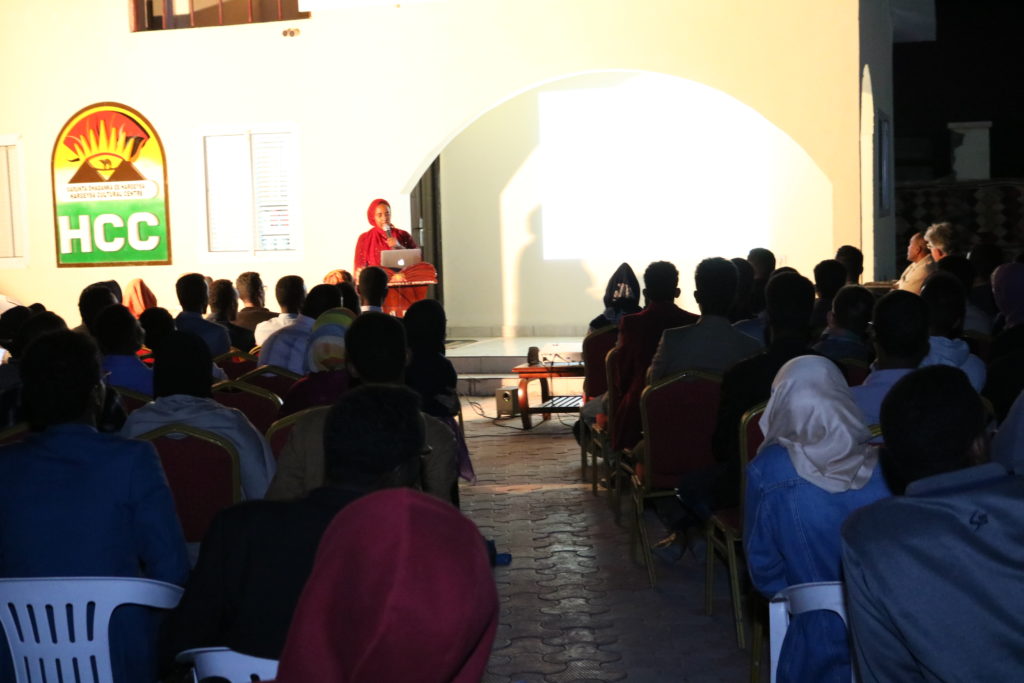
On the aspect of the research methodology, the research is using the Q methodology which was devised to allow an individual to represent his or her vantage point for purposes of holding it constant for inspection and comparison. The key to this approach is to consider data in terms of the individual’s whole pattern of responses, a self- reference rather than looking for patterns among people. People and not tests are the variables is the fundamental perspective of the methodology (McKeown & Thomas 1988).
With this methodology, participants are asked to decide what is meaningful and significant from their perspective by using a Q-sort. From this process an essentially relative set of evaluations is produced. The data from several people are then factorially analyzed; this reveals groups of individuals who have ranked characteristics in the same order. This was explained by Ayan Yusuf the senior researcher of the local partner who further stated that they followed the principle to have an appropriate set of statements that come from the concourse that exists around the issue under consideration, as these are the essence of the subjectivity that will later emerge from the sorting of statements by the participants in addition to making sure that the statements used in Q methodology to be representative of the topic so that there are statements that people can agree with and statements that people can disagree. The other aspect of the research which is expected to have unique presentation is that the statements collected and agreed by the informant on the bases the Q-sort method will later be presented as a story line. This was explained by Dr Benjamin Dix from Positive Negatives, an arts-based company working with the project who has been using comic art as a way of presenting research outcomes.
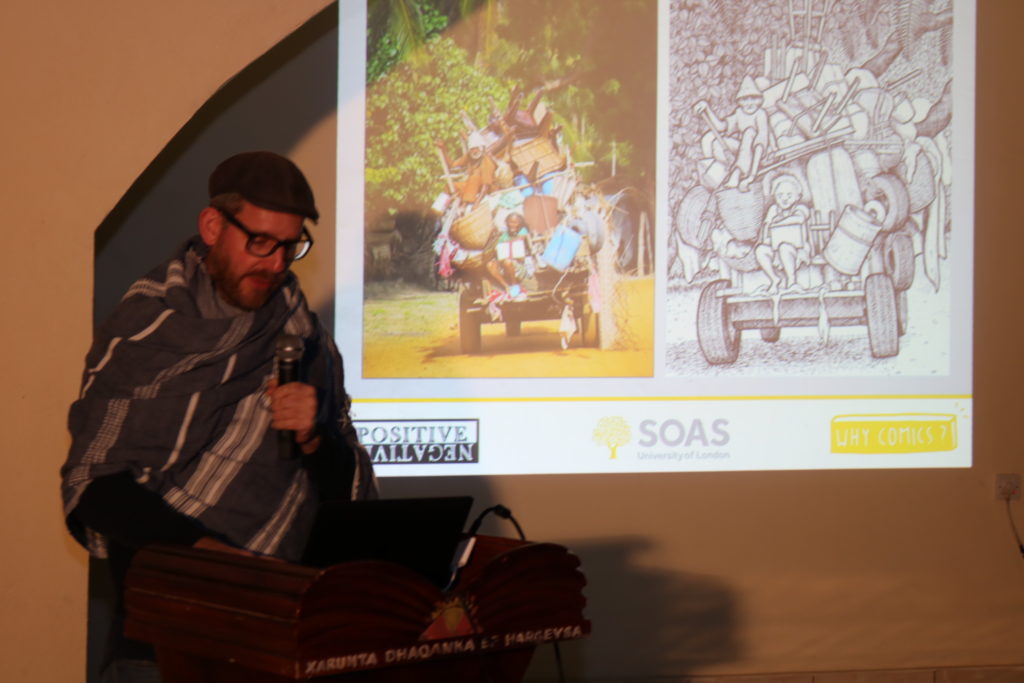
As the research is a work in progress, findings in a generalized form were not part of the presentation. However, the methodological uniqueness and observational issues were part of the follow up questions and discussion. The night also had another mission of providing information on the MSc scholarship at SOAS explained by Dr. Laur Homound the leading coordinator of the scholarship which was an interesting point for the young Somalilanders who has become a major participant of the platform.
The Issue, The Day and The Presentation
Our second presenter for the month was Ebba Tellander a Doctoral Researcher at Peace Research Institute Oslo (PRIO) and International Institute of Social Studies in the Hauge (Erasmus University Rotterdam) whose PhD project focuses on civic mobilization in Somaliland’s recent history.
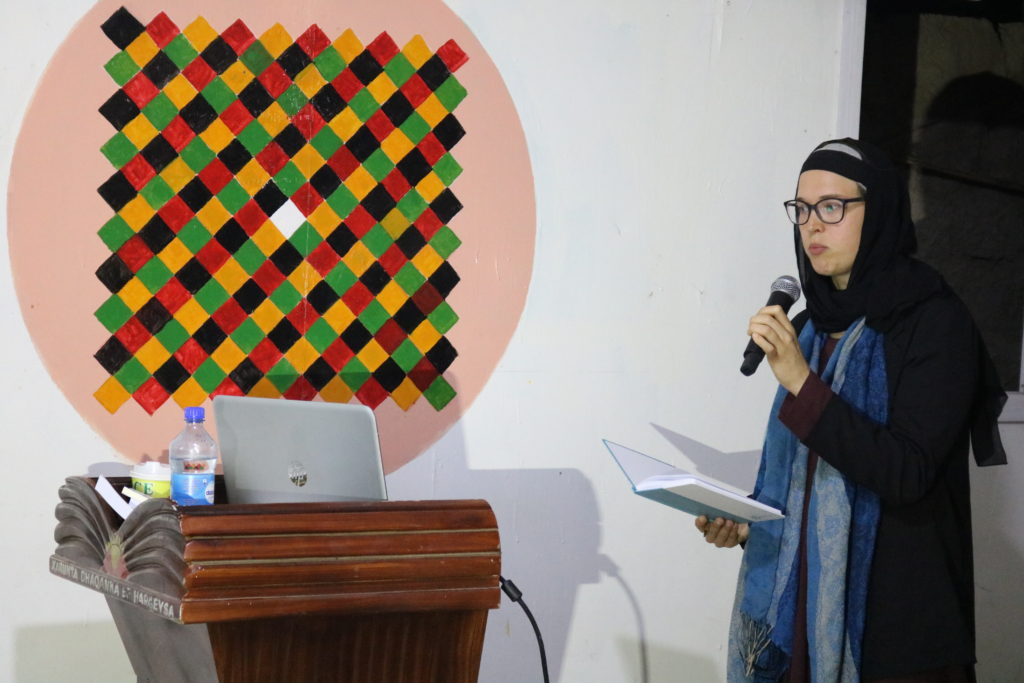
Her research is affiliated with the Societal Transformation in Conflict Contexts project, funded by the Norwegian Research Council. She was a Researcher at the Social Dynamics Department and a Communicator at the Communication Department at PRIO. Her previous research focused on the role of the Somali diaspora in Norwegian foreign policy towards the Somali region. Even though she is in her initial stage of her research work, the topic she is working on has managed to pull in many issues and aspect in Somaliland. It couldn’t have been in a better timing to talk about her research area as Somaliland National Youth Day is commemorated every year on 20th of February in remembrance of the youths who play a huge role in the ongoing development in the country. More specifically the researcher is taking the UFFO group as her case study owing to the fact that those youths who were all locally educated initiated a volunteerism program at the Hargeisa Group hospital under the banner of UFFO with the objective of creating sanitary conditions at the then northern Somalia main health facility. This was as struggle and resistance against the then Somalia dictatorial government of Mohamed Siyad Barre who in the 20th February of 1982 arrested and sentenced to death a number of youth in Somaliland that escalated to crackdown by the dictator’s forces accompanied by security agents from the National Security Service-NSS elicited anger by local youths in Hargeisa through unprecedented protest demonstrations. It is in honor of UFFO members and their activities that stimulated resistance to Barre’s oppression by ordinary locals, the government of Somaliland declared 20th February as a national youth day. This is how the presentation of Ebba intertwined with the commemoration as her research is aspiring to investigate peace development through volunteerism-based resistance movement. The feedback from the youth association members who were attending the discussion along with UFFO members themselves enlightened the academic dialog and assisted the researcher to obtain a more digested foundation for her work progress.
Double Celebration for the month
February went more interesting considering the third week dialog session which was held on the commemoration of the International Mother Language day whereby we lunched the first Somali language audio book a translation of “We Kissed the Ground” a dramatic firsthand account of a migrant’s journey from Somaliland to the Mediterranean published by the Rift Valley Institute in 2017.
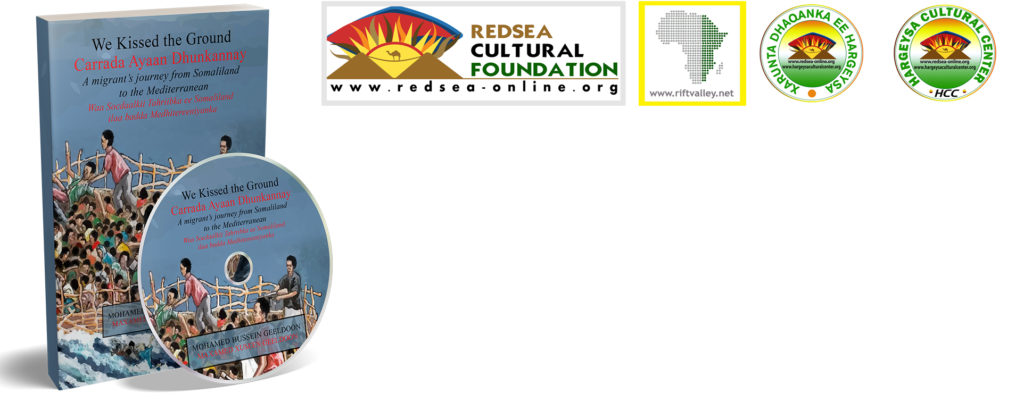
We also had the launching of Dhaxalreeb (1st issue of 2018) our quarterly bilingual magazine (English and Somali) that will serve as another platform to provide literature, academic dialog and traveling information about Somaliland as you are reading it now. Music performance was also part of the entertainment educational structure of the event.
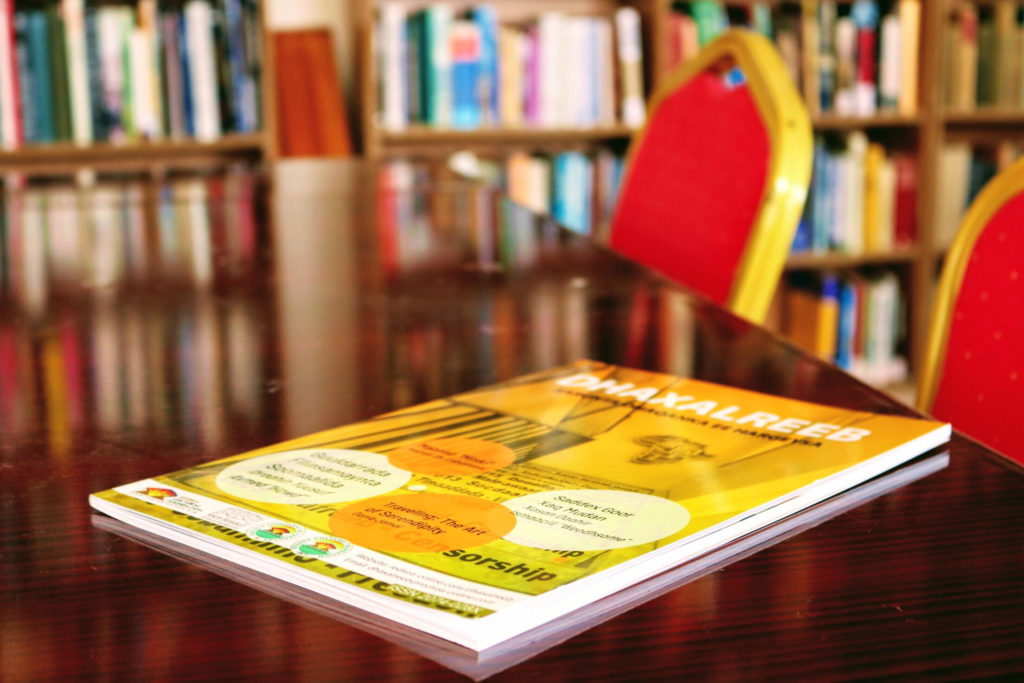
Concluding the month with the thought provoking documentary of The Life of Malcolm X which has a dimension that has not been given much attention.
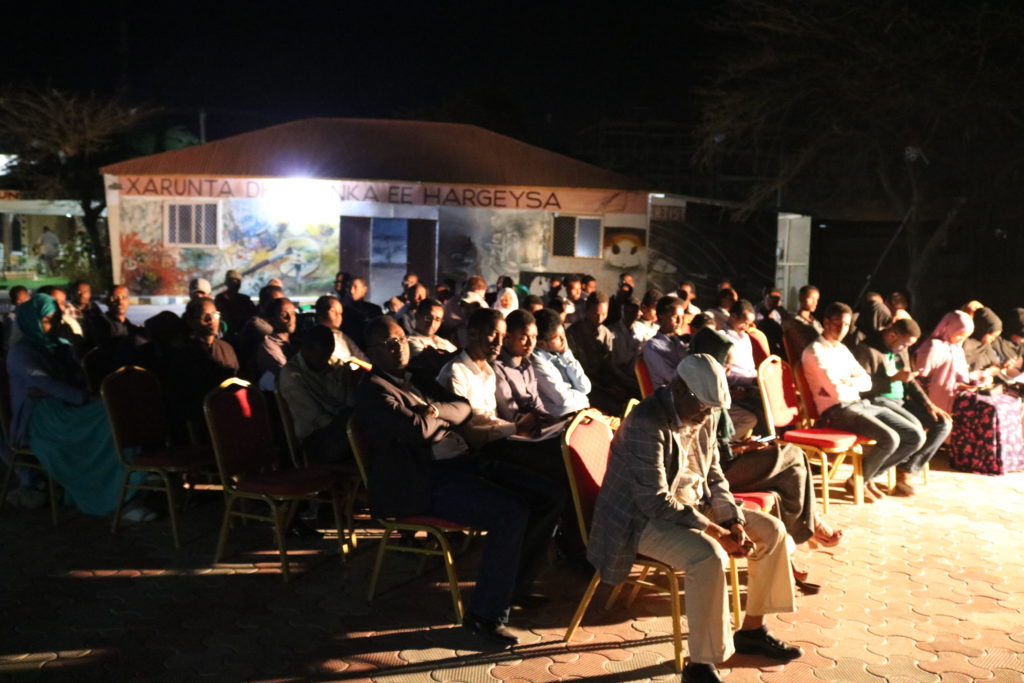
The documentary presents how Malcom X played as one of the influential Muslims. The platform has once again served its intention of linking scholars from all corners of the world who has taken Somalia, Somaliland and Horn of Africa as their area of interest with a strong sense of developing academic discussions in Somaliland lead and owned by local scholars and youth. It is not a surprise then that we have grown to 258 people in our mailing list which we are certain will grow more. The attendance by young Somalilanders who the vibrant voice of the discussion are assures the sustainability of this platform as they will be the next presenters with the rising academic aspiration they have. Well with such a celebratory mood of the month of February that shed a light on the academic discussions we had, we are looking forward to the coming presentation with open hand and heart to anyone who is heading to Hargeysa Somaliland to join our sessions be it as presenter or an attendant.
Note. Please notify us if you or anyone in your academic circle is heading to Hargeysa so that we can set a time table for them to be part of the presentation sessions. info@hargeysaculturalcenter.org or tirsit.yetbarek@redsea-online.org
